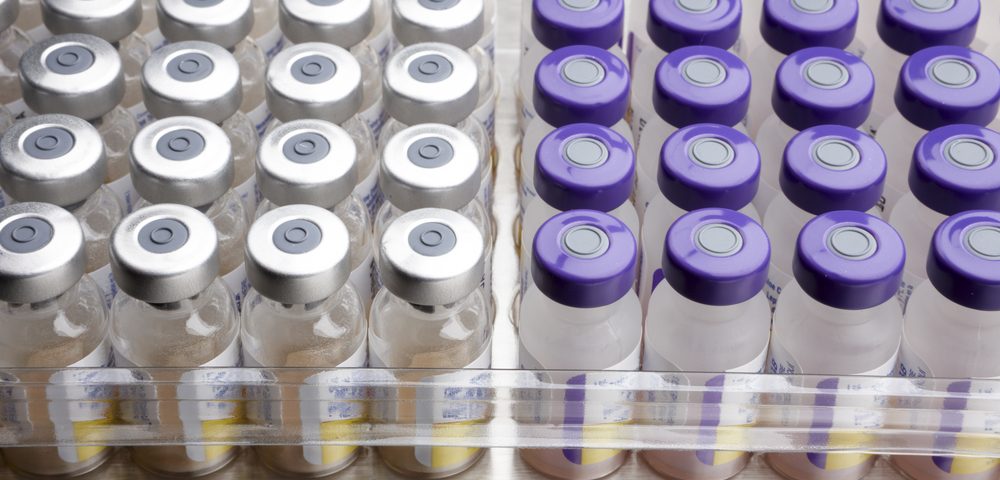Patient dosing has begun in a Phase 3 trial comparing JHL Biotech‘s proposed biosimilar of rituximab JHL1101 to the original medicine, Rituxan (rituximab), in diffuse large B-cell lymphoma (DLBCL), the company announced.
The first patient has been randomized at the Beijing Cancer Hospital in China, but the trial (NCT03670901) is being conducted at several other centers across Europe, China, and other parts of Asia. Researchers hope to include a total of 500 DLBCL patients with CD20-positive tumors who have not received any prior treatment.
Biosimilars are biological medical products that are nearly identical to an original product, but manufactured by a different company after the original product’s patent expires. They are usually sold at significantly lower prices.
Unlike chemical compounds, which are made through chemical reactions, biological medicines are grown in cells and may show some differences from similarly designed products.
As a result, regulatory agencies require extensive data showing that a biosimilar has equivalent safety and effectiveness, and behaves similarly in the body, in regards to absorption, distribution, metabolism, and excretion, as the original medicine.
Rituxan is an antibody that targets the CD20 molecule, widely produced by healthy B-cells and lymphoma cells. It is approved for six conditions, including lymphomas and autoimmune diseases — which are caused by overactive B-cells. But its patent expired in 2016, and cheaper options are now entering the scene.
“Rituximab is an important biologic for the treatment of lymphoma and rheumatoid arthritis. Unfortunately, it is very expensive for patients and healthcare payers. JHL1101 would provide an affordable treatment for these patients,” Racho Jordanov, CEO of JHL Biotech, said in a press release.
JHL1101 is being developed for three of Rituxan’s indications: non-Hodgkin’s lymphoma, chronic lymphocytic leukemia, and rheumatoid arthritis, an autoimmune condition.
Its safety and efficacy are being compared with Rituxan in DLBCL, which is the most common form of non-Hodgkin’s lymphoma. In the trial, patients will receive either JHL1101 or Rituxan in combination with CHOP chemotherapy — the standard treatment for DLBCL.
Investigators will primarily assess responses to treatment to confirm that a similar number of patients experience a reduction in tumor burden. Safety measures will also be compared between both treatments.
Simultaneously, a Phase 1 trial (NCT03161457) analyzing how JHL1101 behaves once inside the body is being conducted in Europe in rheumatoid arthritis patients. The data is expected to support JHL1101’s approval.
“This is a significant milestone for JHL, and a step forward in our goal to become a global leader in developing, manufacturing, and commercializing biologics,” Jordanov said.
In addition to JHL1101, JHL is developing three other biosimilars: one of Avastin (bevacizumab) for colorectal and several other cancers, one of Pulmozyme (dornase alpha) for cystic fibrosis, and another of Herceptin (trastuzumab) for breast cancer.


